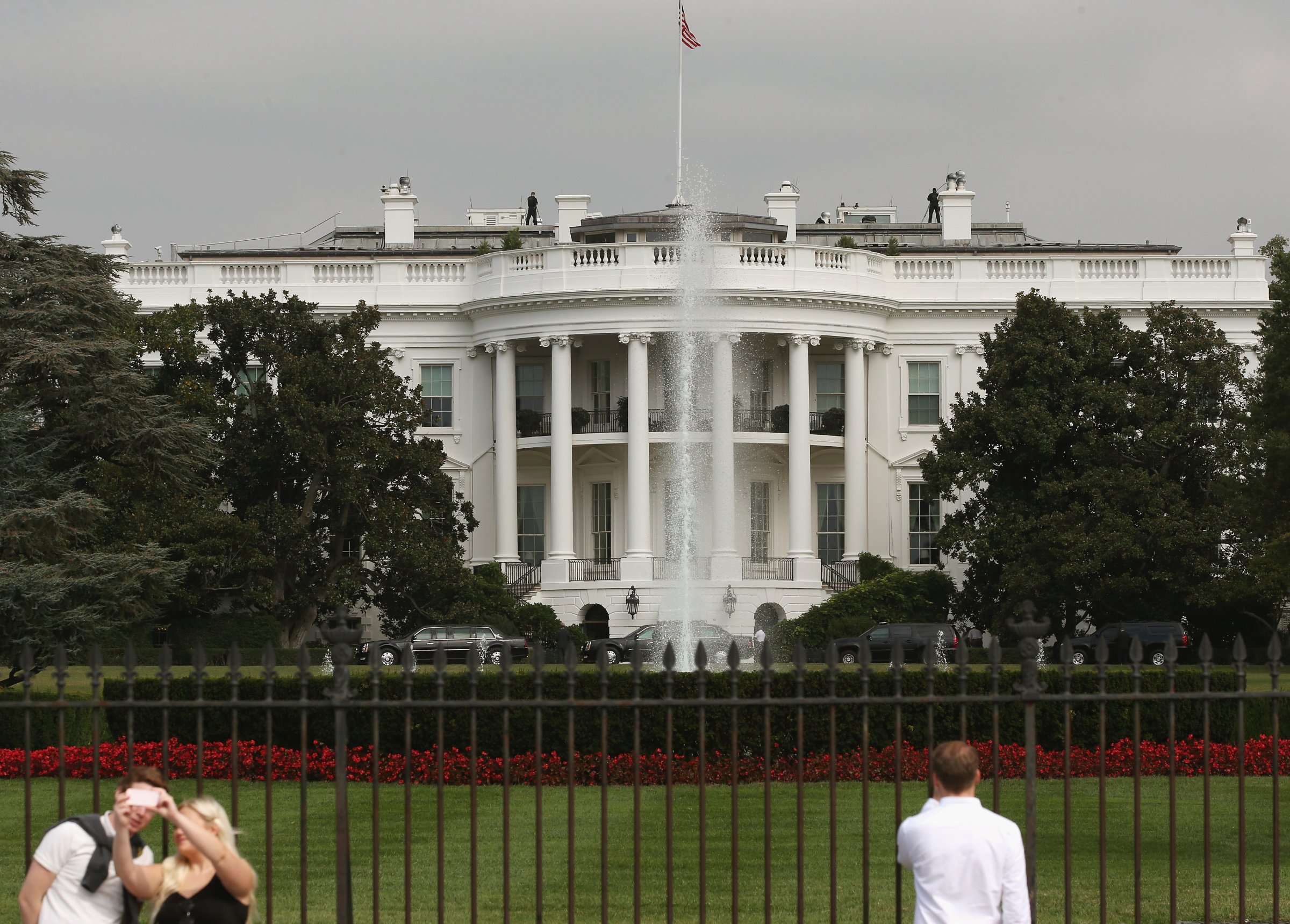
Within minutes of confirmation from the Centers for Disease Control and Prevention (CDC) of the first confirmed case of Ebola on U.S. soil, the White House communications operation sprang into overdrive. Their message: don’t panic.
Seeking to combat the inevitable national concern over the deadly infectious disease which has ravage West Africa for more than six months,the Obama administration took to social media to raise awareness that while the virus is potent, it is relatively hard to contract.
“You can’t get Ebola through air. You can’t get Ebola through water. You can’t get Ebola through food in the U.S.,” the administration said in a rapid-response graphic shared on the White House website and Twitter, Facebook, and Instagram accounts. “America has the best doctors and public health infrastructure in the world, and we are prepared to respond.”
President Barack Obama was informed minutes before a scheduled meeting of the National Security Council on the efforts to combat the spread of the Islamic State of Iraq and Greater Syria (ISIS), an official said.
Lisa Monaco, the President’s Counterterrorism and Homeland Security Advisor, has been coordinating the administration’s homeland preparedness response to Ebola, and White House chief information officer Steven VanRoekel has returned to the U.S. Agency for International Development to work on the response, but Obama has not appointed a point-person to oversee the government-wide effort to combat Ebola.
CDC Director Dr. Tom Frieden briefed Obama by phone Tuesday afternoon on the diagnosis, as well as the “stringent isolation protocols under which the patient is being treated as well as ongoing efforts to trace the patient’s contacts to mitigate the risk of additional cases,” the White House said.
Earlier in September, Obama traveled to CDC headquarters in Atlanta for a briefing on the disease, announcing the deployment of hundreds of U.S. medical personnel and 3,000 American troops to assist in the response in Africa, while various federal agencies have worked to raise awareness at U.S. ports of entry and medical facilities.
In an interview with NBC’s Chuck Todd in early September, Obama said Americans shouldn’t consider the virus a “short term” threat, but warned that unchecked it could be a greater issue.
“Americans shouldn’t be concerned about the prospects of contagion here in the United States short term, because it’s not an airborne disease,” Obama said on Meet the Press. But he warned that the U.S. must make the disease a “national-security priority.” “If we don’t make that effort now, and this spreads not just through Africa but other parts of the world, there’s the prospect then that the virus mutates,” he said. “It becomes more easily transmittable. And then it could be a serious danger to the United States.”
Senior Advisor Dan Pfeiffer was appearing on CNN’s The Situation Room in a pre-arranged interview Tuesday evening, but urged calm. “America has the best doctors and public health infrastructure in the world, so we’re ready to deal with it,” he said, adding that the U.S. has “been prepared for this possibility for a long time.”
More Must-Reads From TIME
- The 100 Most Influential People of 2024
- Coco Gauff Is Playing for Herself Now
- Scenes From Pro-Palestinian Encampments Across U.S. Universities
- 6 Compliments That Land Every Time
- If You're Dating Right Now , You're Brave: Column
- The AI That Could Heal a Divided Internet
- Fallout Is a Brilliant Model for the Future of Video Game Adaptations
- Want Weekly Recs on What to Watch, Read, and More? Sign Up for Worth Your Time
Contact us at letters@time.com